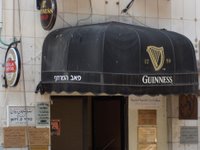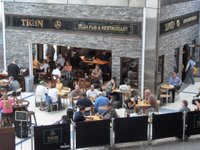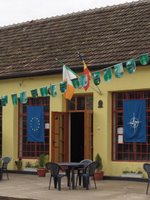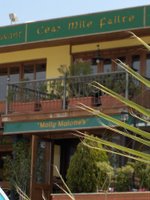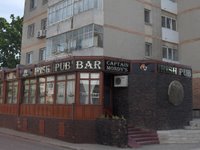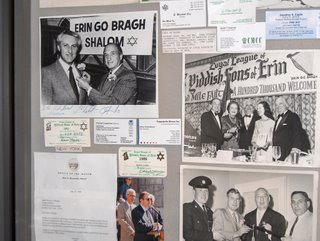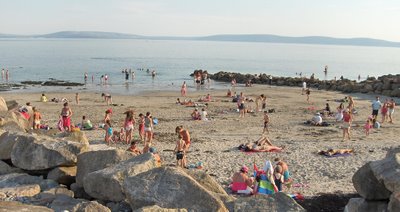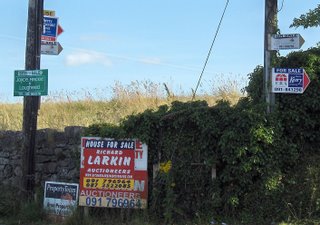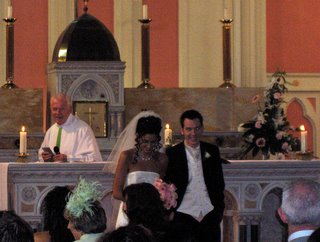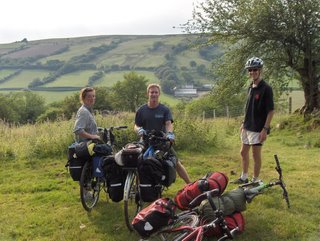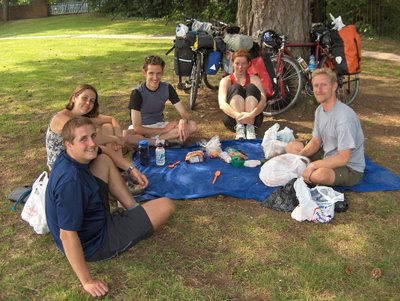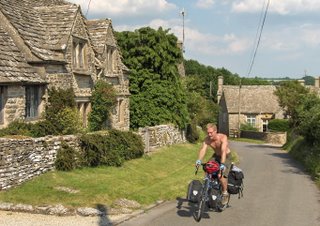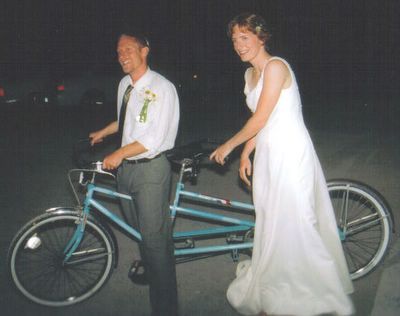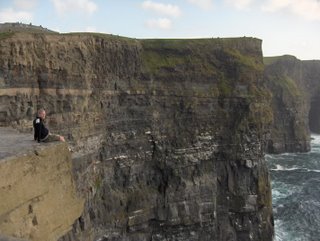
Hannah keeps saying how tough I am, surviving the onslaught of relatives. I must say, while long drives aren't my favorite way to pass time, I am a big fan of endless cups of tea and hot whiskey, family lore, visits to ol' haunts and long chats around the kitchen stove.
With all this discussion of the "New Ireland," the "Celtic Tiger," rising house prices, aggressive BMW drivers, immigration, and the rest of the modern global village's travails, it was reassuring to start in Ireland's heartland.
Hannah's mother, Margaret, met us in Cork and we watched the scenery fly by as we headed for Kerry in the luxury of a rental car. The bike odometers stalled at 3,600 kilometers, while we enjoyed the rest.
In North Kerry we watched a DVD of Hannah's cousin, Sean, playing in the local hurling championship. (If you don't know, this is a traditional Irish game that's similar to field hockey, except that it's full contact and much of the game is played with raised sticks. They recently introduced helmets. The older players are all missing teeth.) A commemorative DVD includes a charmistic announcer complaining of a hangover, an interview with the hurling-mad local priest, and a final victory of which one player said: "joy would not begin to describe it." This was the first time the local hurling club had won the coveted championship in thirty years, and the celebration showed more real passion, pleasure and joy in the win than any professional footballer winning the World Cup--especially when it's a penalty shoot-out between Italy and France.

But I digress. Hannah's family made me feel not like a guest, but more like just another kid, or cousin, or only-slightly-distant family member. We were ferried to the various family graveyards to wander among the lichen-covered headstones (and fancy new polished-marble hulks complete with laser-etched pictures of Jesus and Mary). We climbed fences and dodged nettles, brambles and gorse walking the ancestral farm.
We toured around the scenic Dingle Peninsula. We even trekked up to the family section of bog, where strips of peat are still cut and dried to make fuel.
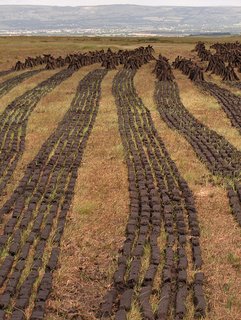
One of the Hickey uncles invited us to a Monday night "session" at a pub in a local town. Again, the scene, or the "craic," was gay and genuine. Everyone, their cheeks pink with drink, would be nudged into giving a song for the crowd.

Eventually, the umbilical cord was cut and we got back on the bikes. We took the coast road north through County Clare, home of Ireland's traditional music scene. In a little pub in Doolin, we actually found ourselves a little disappointed. This was a scene of self-styled professional muscians playing for an audience of tourists. They were fine musicans but it wasn't to be confused with vibrant, healthy culture.
Further north along the coast, we crossed the desolate limestone pavement of the Burren, and stopped and looked out on a turquoise sea. We wasted hours lolling about, watching dolphins swim by, cormorants carrying out fishing trips from their perches on the cliffs, and the odd fisherman, swinging by to pick up lobster traps.
But we had business to attend to. The now Siobhan O'Grady was about to get married in Galway, and we needed to get there and find acommodations--not only in high season, but in a town whose population had already swollen in anticipation of the great Galways Arts Festival.
And we thought we were going to get some rest.
